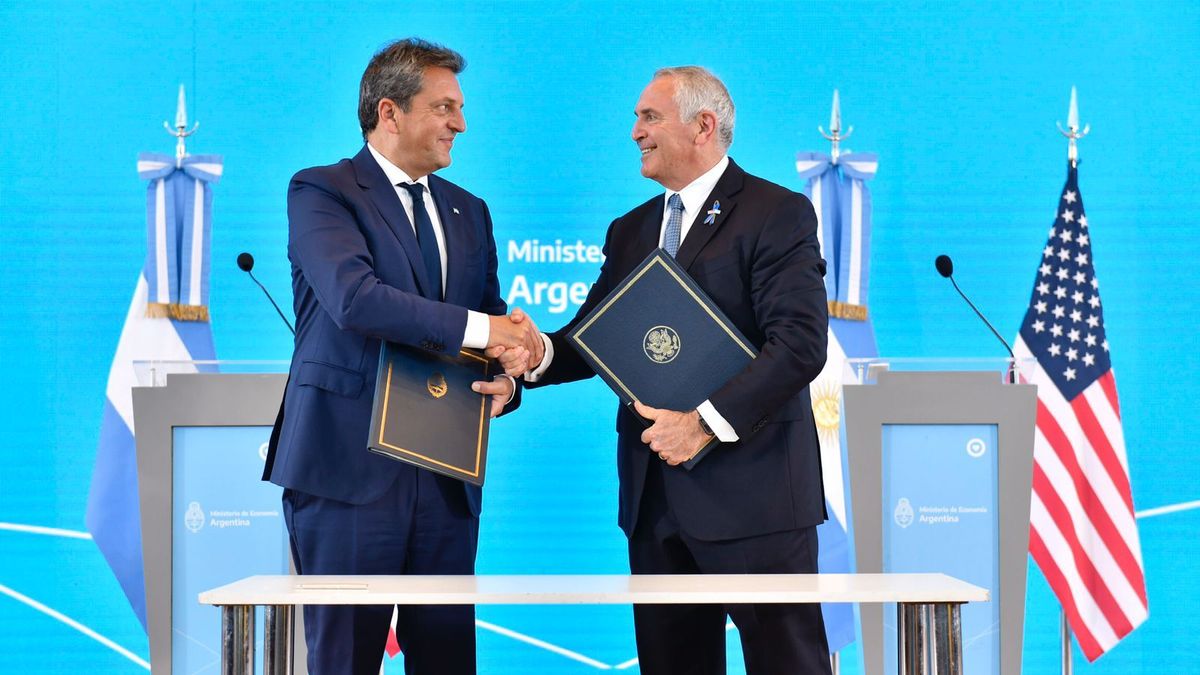The difference is that this agreement was “case by case”, while the one recently signed by the Minister of Economy, Sergio Massa, is automatic. Currently, due to the case-by-case exchange, Argentina had access to information from 68 citizens, according to Economía. With the group information requests that will be made in 2023, Economía hopes to reach thousands of Argentines.
When asked about how these group requests work, the tax official Sebastián Domínguez explained to Ámbito: “To do this they have to have specific information that people have an undeclared account in the United States, they cannot go on a fishing excursion because otherwise The United States will not answer. But they could put together groups if they carried out inspections and have data, such as a bank statement, or a complaint from another person, and there they could request a request, but not in the abstract due to simple suspicion ”.
Meanwhile, the automatic exchange of information agreement is already uploaded on the US Treasury site. Even though it is not signed, it is valid, and will enter into force on January 1st, after Argentina has advanced with all the required standards in terms of security, and with the establishment of the fine print of what the mechanism is like for the banks send tax information. The part that remains for the US government, which is to notify the Congress of that country, is a simple procedure, according to what this newspaper was able to find out.
But also, IGA 1 establishes that there could be changes in what was signed, something that could benefit Argentina in the search for evasion information. “This annex may be modified by mutual written decision between the competent authorities of Argentina and the United States, to include additional entities and accounts”establishes the signed model, in annex II.
The idea of moving forward with group requests for information is also to encourage money laundering, given that just as the agreement is proposed, the information will only arrive in September 2024. But beyond adding an incentive for evaders, the Government has another concern: Congress not passing the law. It is the only possible mechanism to advance with these initiatives, but the paralysis of the Legislative Power and the lack of agreements are observed with great concern. “The difference with other launderings is that here they have an established horizon,” said a senior official source.
Massa’s idea is that the externalization law be dealt with in extraordinary sessions. “The possibility of these citizens voluntarily informing the Argentine State of their situation is established prior to the time of delivery of information, with a system of lesser punishments than those provided by law in the event that they do not report it,” he said in an interview with Radio 10. “I read somewhere that the government needs the law. No, those who need the possibility of having an externalization mechanism are those who have an irregular situation before the AFIP so as not to have a litigious situation before the Argentine treasury, ”he added.
But also, by 2023 the Government sets its eye on another issue: the National Tax Court. Official sources assure that when an evader is sought and a precautionary measure is placed on him, The judicialization of the cases via appeals by the evaders leads to more than $100,000 million in tax lawsuits, money in pesos that liquefies over time. That figure, which five years ago was equivalent to litigation for US$5,000 million, today is equivalent to US$600 million, due to the devaluation of the exchange rate.
Source: Ambito
David William is a talented author who has made a name for himself in the world of writing. He is a professional author who writes on a wide range of topics, from general interest to opinion news. David is currently working as a writer at 24 hours worlds where he brings his unique perspective and in-depth research to his articles, making them both informative and engaging.




